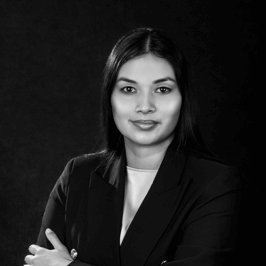We have all witnessed how the rise of artificial intelligence (“AI”) has enabled the manipulation of images and videos to an unprecedented degree. In particular, people’s faces are often altered or replicated in such a realistic manner that many viewers struggle to determine whether the content is genuine or artificially generated. At the same time, AI platforms are increasingly being used to create and spread fake news incorporating images and/or videos of people with fabricated content designed to mislead the public and, in many cases, incite fear or unrest. This blurring of reality and fabrication raises serious concerns about consent, misrepresentation, misinformation, and the protection of one’s image and identity in the digital age.
A deepfake is a form of synthetic media generated using artificial intelligence, typically through deep learning techniques of AI. In this context, AI is used to superimpose or manipulate a person’s likeness, which is often their face or voice, onto another person’s body or into a video, making it appear as though they are saying or doing something they didn’t actually do.
One of the most concerning aspects of deepfakes is that they are frequently distributed without any disclaimer, making it difficult for viewers to distinguish between real and manipulated content. Unlike traditional media, which is typically subject to editorial standards and fact-checking, deepfakes can circulate freely on digital platforms without oversight. This lack of transparency increases the risk of deception, reputational harm, and the spread of misinformation, particularly when deepfakes are used maliciously or without the consent of the person depicted.
In an attempt to regulate the harmful effects of deepfakes and ensure that individuals have some form of legal recourse, Denmark has proposed that copyright protection be extended to include people’s likeness, namely their faces, body and voice. This legislative initiative seeks to address the increasing misuse of people’s likeness, particularly through the use of artificial intelligence and deepfake technology. By recognising a person’s face as a protectable element under copyright, the proposal aims to give individuals greater control over the use of their image and to curb unauthorised exploitation in digital media.
This new development in Denmark’s proposed copyright reforms also introduces mechanisms that would allow individuals to request the takedown of unauthorised content featuring their likeness. In addition, the proposal includes discussions around potential compensation for individuals whose facial features have been misused. These measures aim to provide more robust protection for individuals in the digital age and offer meaningful remedies in cases of image-based infringement or harm caused by deepfakes and other AI-generated content.
This proactive step by Denmark raises an important question: Why have other countries not taken similar measures to protect individuals and regulate the use of their likenesses in the face of rapidly advancing AI technology?
Despite the increasing misuse of facial and vocal features through deepfakes many jurisdictions have yet to implement specific legal frameworks that address these concerns. The lack of comprehensive regulation leaves individuals vulnerable. Denmark’s proposal sets a significant precedent, highlighting the urgent need for broader international dialogue and legislative action.
From a South African perspective, while the Copyright Amendment Bill is yet to be promulgated, Denmark’s approach prompts reflection on whether similar protection for people’s likeness should be included in the bill. With the rise of AI and deepfakes, current laws on privacy and personality rights may not go far enough to protect the public. It may be necessary to consider specific legislative measures to ensure individuals are protected from unauthorised use of their identity in digital media.
It will be interesting to see how other countries interpret, adapt, and potentially follow Denmark’s lead in recognising and protecting people’s likenesses in the context of emerging technologies. As the global legal landscape evolves in response to the challenges posed by AI and deepfakes, Denmark’s approach may well serve as a benchmark for future reforms aimed at safeguarding personal identity in the digital age.

